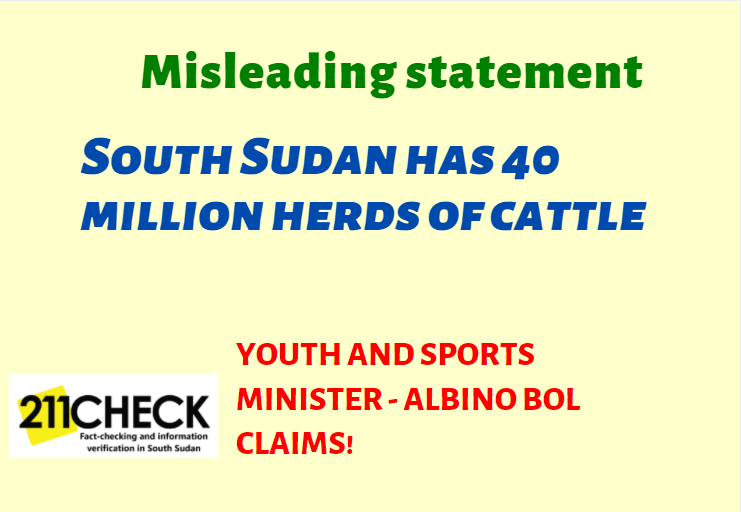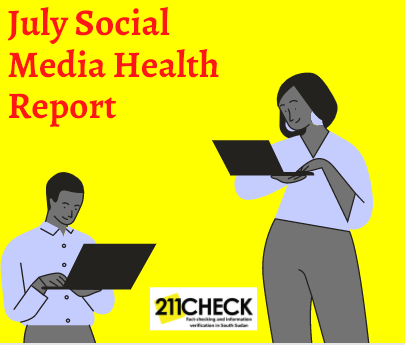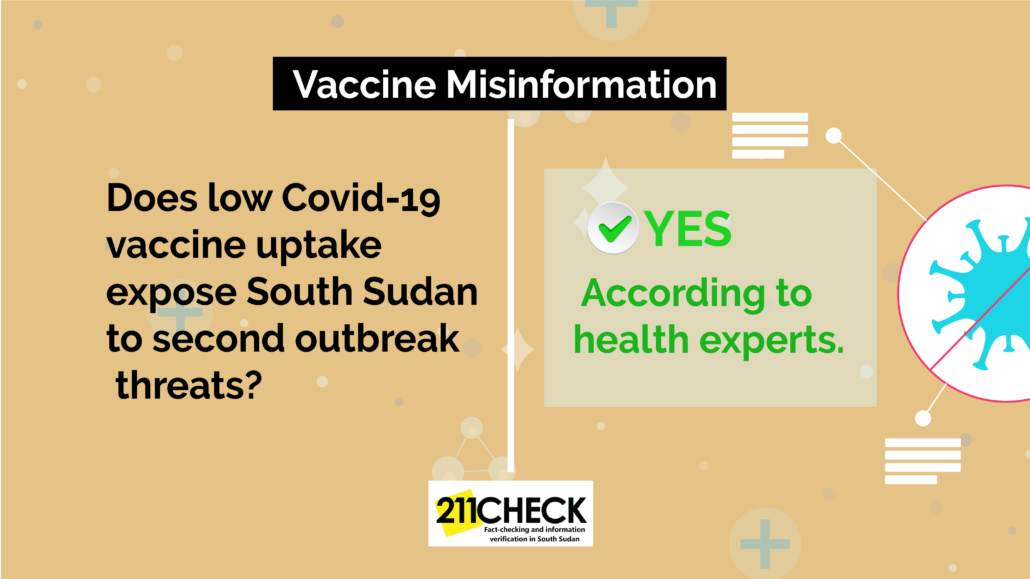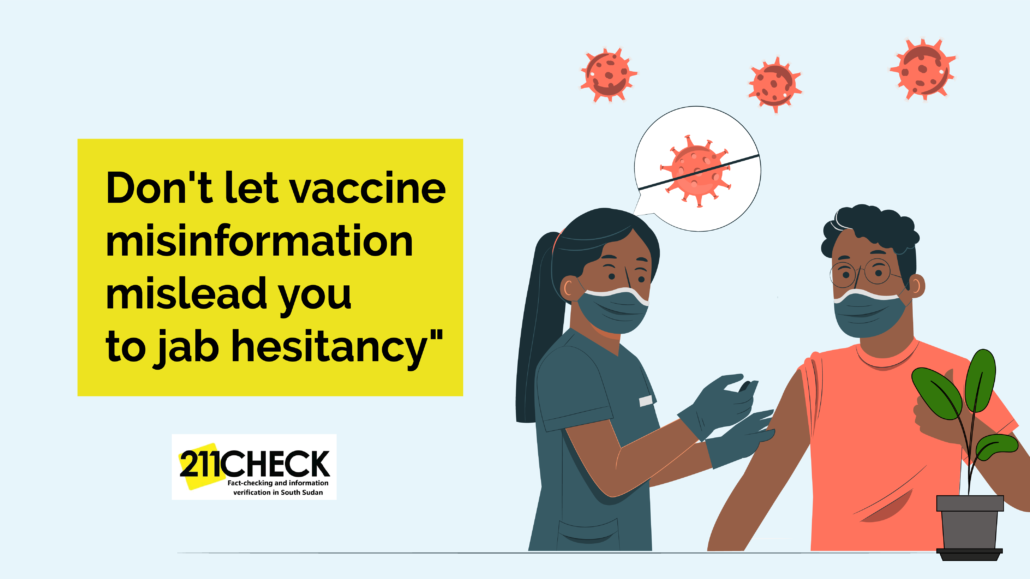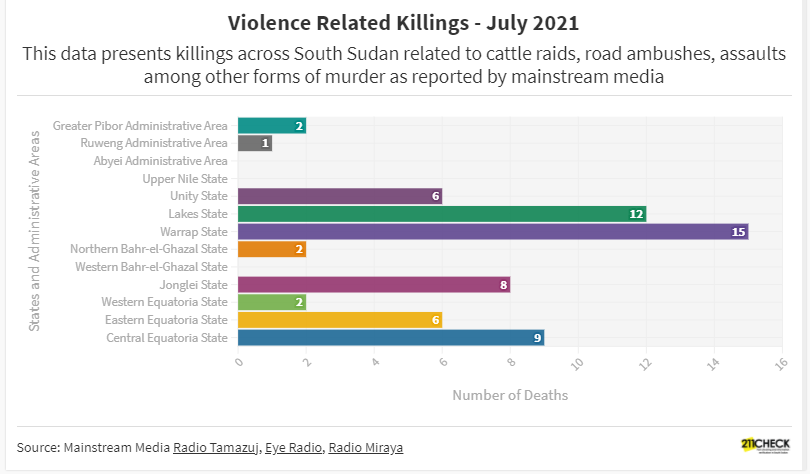Core values
1. Commitment to non-partisanship and non-political affiliation
We fact-check claims using the same standard for every fact check, that is applicable to any story from various fields and works of life. In order to have a productive impact on creating content, we do not concentrate our fact-checking on one specific thematic area. We follow the same process for every fact check and rely on the evidence to tell our findings. On an important note, 211 Check does not advocate (for) or take policy positions on the issues we fact-check.
2. Commitment to fairness
Our work focuses on having all sides of the story presented in the report. We don’t take sides or allow our bias to control or jeopardize the integrity of our findings. Our stories are well balanced, critical and evidence oriented.
3. Commitment to the transparency of sources
As South Sudan’s leading fact-checking organization, we make sure our readers are able to verify our investigations themselves. We provide all sources in enough detail so that readers can replicate our work, except in cases where a source’s personal security could be compromised. In such cases, we provide as much detail as possible while keeping the source anonymous. However, other non-threatening details about the source are kept in the story to ensure that it is still believable.
4. Commitment to the transparency of funding and organization
211 Check is transparent about its funding sources. If we accept funding from other organizations, we ensure that those funders have no influence over the conclusions we reach in our reports. We detail the professional background of all key figures in our organization and explain our organizational structure and legal status. We clearly indicate a way for readers to communicate with us without blockages or difficulties.
5. Commitment to the transparency of fact-checking methodology
We explain the methodology we use to select, research, write, edit, publish and correct our fact checks. We encourage readers to send us claims to fact-check through our website and social media platforms and we are transparent on why and how we fact-check.
6. Commitment to open and honest correction
We publish our corrections publicly and follow them scrupulously. We correct clearly and transparently in line with our corrections policy, seeking so far as possible to ensure that readers see the corrected version.
Corrections policy
Our correction policy is a document that informs and governs staff behaviour, sets clear expectations, and confirms that the administration has performed its role. It is also the basis for staff supervision, training, and supporting a defense in case of a negative outcome.
We welcome and value both positive and negative feedback from our audience. In the unlikely event that an error is discovered, we are open and responsive to corrections and inputs that would improve our work for the better.
Please send feedback, corrections or complaints to [email protected].
Help us know exactly what your concerns are by making your comments as clear as possible. Where possible, please include any links to reference material or data that is publicly accessible.
Correction process
Feedback can be submitted in the comment section under an article or in an email to [email protected]. These channels are checked daily.
Every comment and all feedback is reviewed by a senior member of staff.
We’ll let you know as soon as we have considered your feedback or comment as well as whether we will be making a change in our article in response to it. If we do decide to make a change, it will be highlighted in the article.
- In the case of a factual error, a note will be added to the report and labelled “CORRECTION”, with an explanation of what has been changed.
- In the case of clarifications or updates, a note will be added and labelled “UPDATE”, with an explanation of what has been changed.
How we rate claims
211 Check fact-checking and information verification platform is managed and run by #defyhatenow South Sudan, an NGO registered in South Sudan with a registration number 2285.
Our values set out how we operate as a fact-checking entity, how we select claims [statements or stories] to check and the way we conduct our research.
Below we elucidate the ratings we give once we have conducted that research: how we decide the ratings, what they mean and how you can check our findings.
Deciding our ratings
When our fact-checkers complete their investigations, three staff members–the report fact-checker and two editors [Associate and Managing Editors] – deliberate on the suitable rating for the claim. In case they do not all agree, they take a vote.
We choose each rating to give readers the clearest understanding of the accuracy of the statement we can – according to the best evidence publicly available at that particular time.
Below are the five key principles behind our ratings.
True
The claim is accurate, according to the best evidence publicly available at the time, and leaves out nothing significant.
False
The claim is inaccurate according to the best evidence publicly available at the time.
Unproven
Evidence publicly available at the time neither proves or disproves the statement. More research is needed.
Misleading
Elements of the claim are accurate but presented in a way that is misleading.
Exaggerated
The claim exaggerates the facts.
Understated
The claim understates the facts.
Checked
Multiple claims have been fact-checked.
Hoax
A falsehood deliberately fabricated to masquerade as the truth, humorous or malicious deception.
Core principles
1. We rate statements of fact
211 Check does not rate the accuracy of ideas, opinions, philosophies or arguments. We rate the accuracy of what people say and present as statements of fact. We focus on both the precise words they use and the context of the statement.
2. A focus on what is significant
When we rate the accuracy of statements, we do not set out to identify tiny inconsistencies. Precision is important but we are not interested in numbers down to three decimal places unless that matters for a reason.
4. The best evidence publicly available – at the time
Almost all data, the whole world over, is something of an estimate. Across Africa, the quality of data varies, not just from country to country but from subject to subject. To rate claims, we rely on the best evidence publicly available at the time the claim is made. This ranges from clearly sourced data and statistics to on-the-record interviews. We do not use off-the-record briefings or evidence unavailable to the public.
5. Mistakes and updating when new or better evidence appears
With our mandate that guides us to always produce final accurate reports, we work hard to make our research findings accurate, according to the best evidence available at the time. When there is something we miss, let us know and we will review the report. If the report needs a correction or update, we will do that and direct readers to the change.


